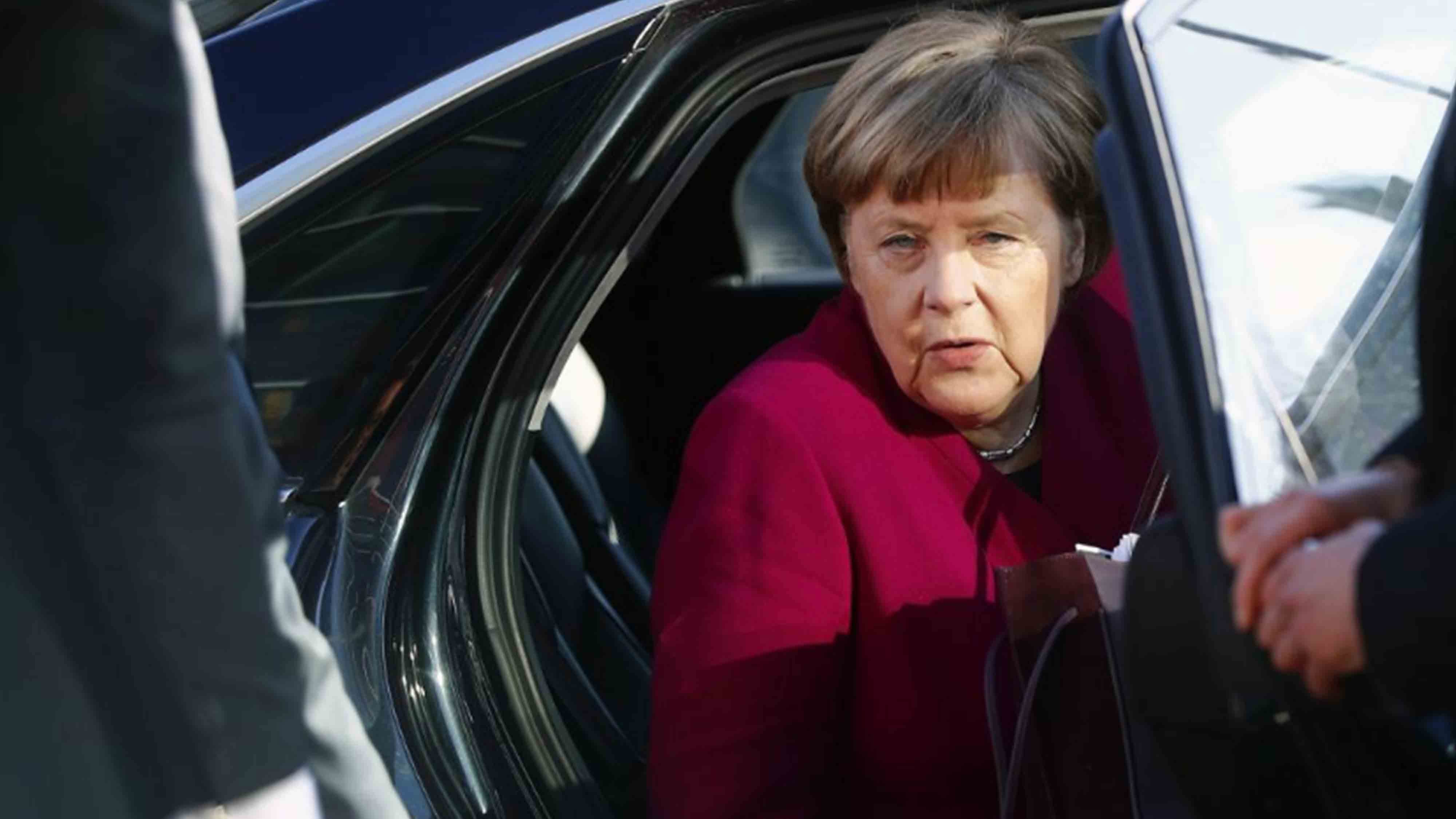German Chancellor Angela Merkel said on Tuesday she was ready to make “painful compromises” as negotiators from her conservative bloc and the Social Democrats (SPD) rushed to clinch a coalition government deal after months of political uncertainty.
Merkel’s failure to cobble together a government more than four months after a national election has raised concerns among allies and investors at a time when Europe is facing multiple challenges – including the need for euro zone reform and Britain’s departure from the EU.
Near finishing lane
Both sides had billed Tuesday as “decision day” but were still negotiating late into the evening on the stance of any future coalition on reform of the healthcare system and job contracts.
SPD leader Martin Schulz told press in Berlin that Tuesday would now be "the day of decision."
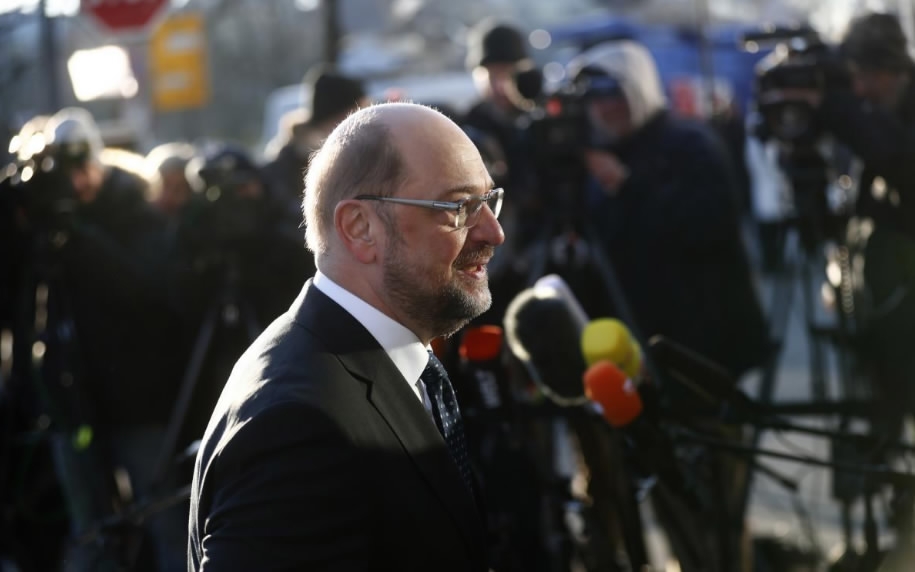
Social Democratic Party (SPD) leader Martin Schulz arrives for coalition talks at the Christian Democratic Union (CDU) headquarters in Berlin, Germany, February 6, 2018. /VCG Photo
Social Democratic Party (SPD) leader Martin Schulz arrives for coalition talks at the Christian Democratic Union (CDU) headquarters in Berlin, Germany, February 6, 2018. /VCG Photo
CSU regional leader and senior negotiator Alexander Dobrindt said that all parties would have to "leave their trenches" in the final leg of negotiations to ensure their success.
Andreas Scheuer, secretary-general of the Christian Social Union (CSU), Merkel’s Bavarian ally, said there was no chance of extending the talks beyond Tuesday. “So we have to come to an agreement tonight. Anything else would be unreasonable for our citizens.”
Speaking before the resumption of talks, Merkel had urged the negotiating parties to show willingness for compromise.
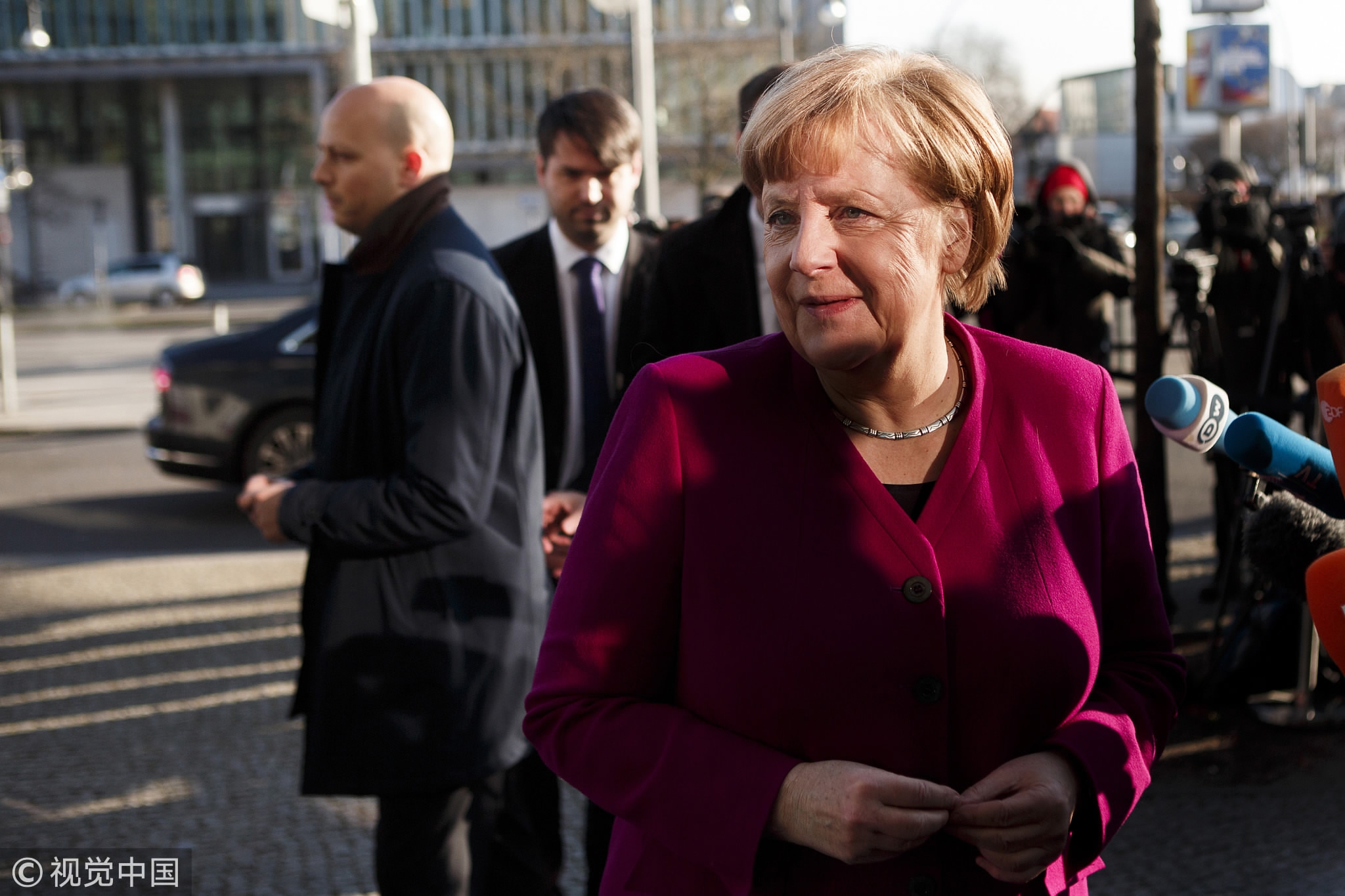
German Chancellor and leader of the Christian Democratic Union (CDU) Angela Merkel arrives at CDU headquarters in Berlin on Tuesday for what was supposed to be the last day of government coalition negotiations. /VCG Photo
German Chancellor and leader of the Christian Democratic Union (CDU) Angela Merkel arrives at CDU headquarters in Berlin on Tuesday for what was supposed to be the last day of government coalition negotiations. /VCG Photo
"Each of us will have to make painful compromises and I am ready for that," she told reporters.
“When we see the movements on the stock markets over the last hours, we live in turbulent times and what is expected of us as popular parties ... is that we form a government for the good of the people, one that brings stability.”
Germany could face a new election or an unprecedented minority government if the SPD’s roughly 464,000 members – who must approve any final coalition deal – vote it down.
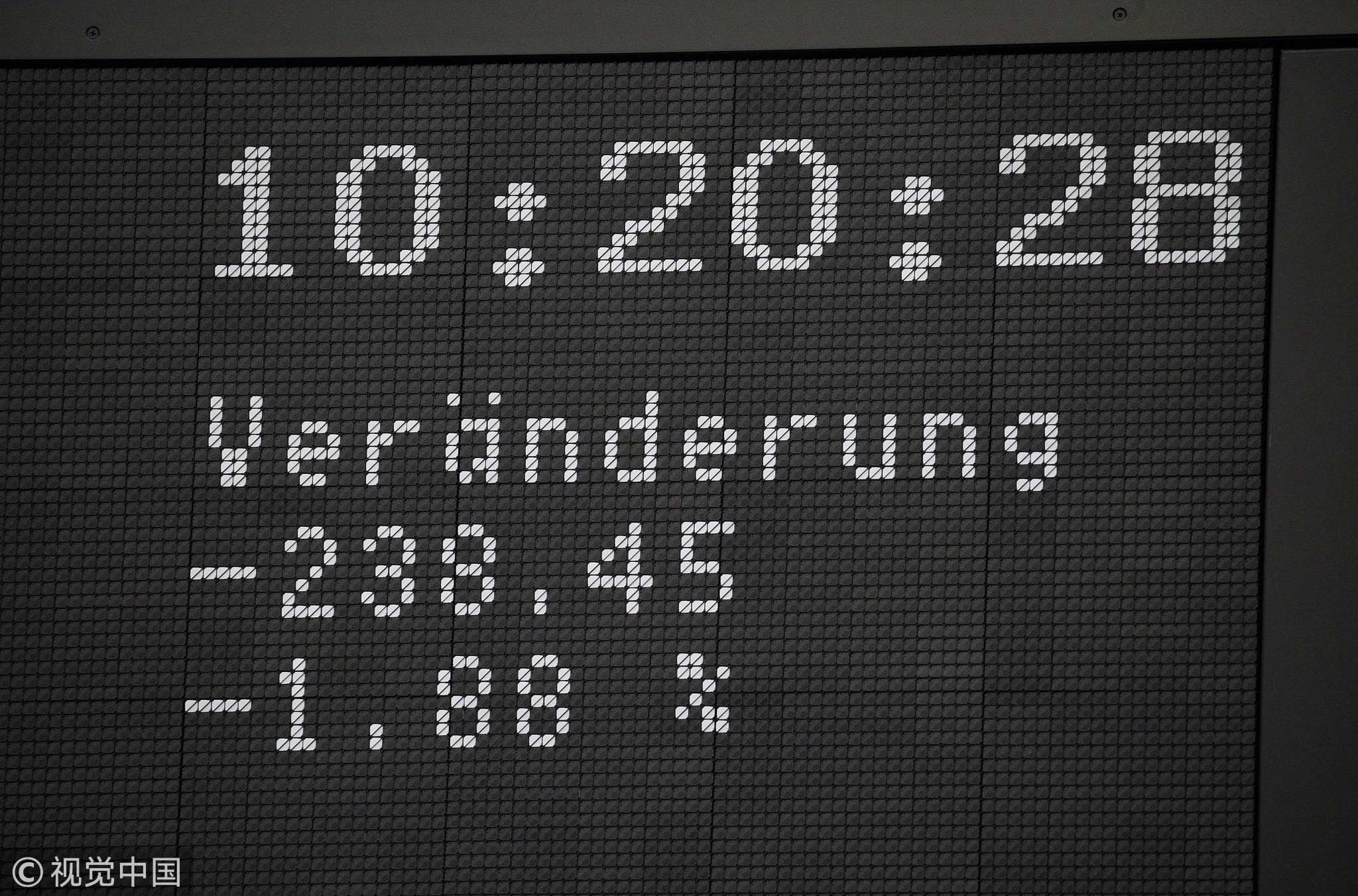
Numbers showing the negative change of the German DAX share price sit on a display screen inside the Frankfurt Stock Exchange, operated by Deutsche Boerse AG, in Frankfurt, Germany, Tuesday. /VCG Photo
Numbers showing the negative change of the German DAX share price sit on a display screen inside the Frankfurt Stock Exchange, operated by Deutsche Boerse AG, in Frankfurt, Germany, Tuesday. /VCG Photo
Narrowing differences
Two negotiating sources later said the parties had come closer together over health policy, but Hans Michelbach, another senior CSU member, cautioned that the talks would probably last a “very, very long” time.
The SPD wants to replace Germany’s dual private-public healthcare system with one health insurance for everyone and to ban short-term employment contracts imposed by employers without justification. The conservatives oppose both SPD demands.
The SPD has promised its members it will seek improvements on the two issues compared with a coalition blueprint agreed in January and is keen to show them it has made progress.
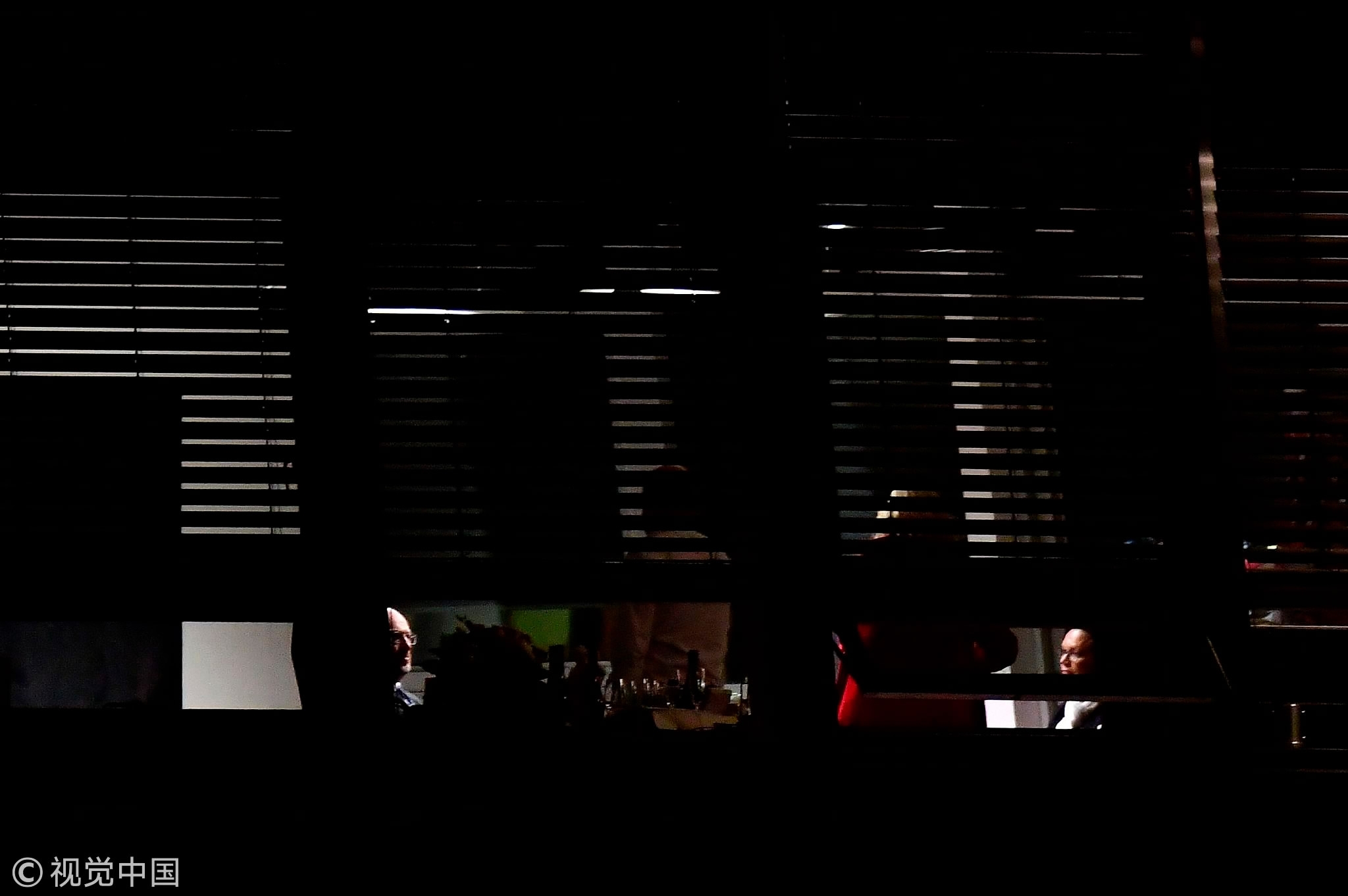
Martin Schulz (L), leader of Germany's Social Democratic SPD party, is seen in a meeting room at the Christian Democrats (CDU) headquarters, Tuesday. /VCG Photo
Martin Schulz (L), leader of Germany's Social Democratic SPD party, is seen in a meeting room at the Christian Democrats (CDU) headquarters, Tuesday. /VCG Photo
Sources involved in the talks said proposals discussed earlier to let companies write down digital investments would not appear in a coalition agreement, along with proposals to progressively abolish Germany’s air transport tax.
The two blocs also took an unusual swipe at Israel over its building of settlements on occupied Palestinian land, according to the copy of a draft seen by Reuters, but added: “Israel’s right to exist is irrefutable for us and a pillar of German politics.”
German governments have made strong relations with Israel a priority since World War Two when six million Jews were killed by the Nazis. But relations have grown tense in recent years as Germany questioned Israeli Prime Minister Benjamin Netanyahu’s commitment to a two-state solution with the Palestinians.
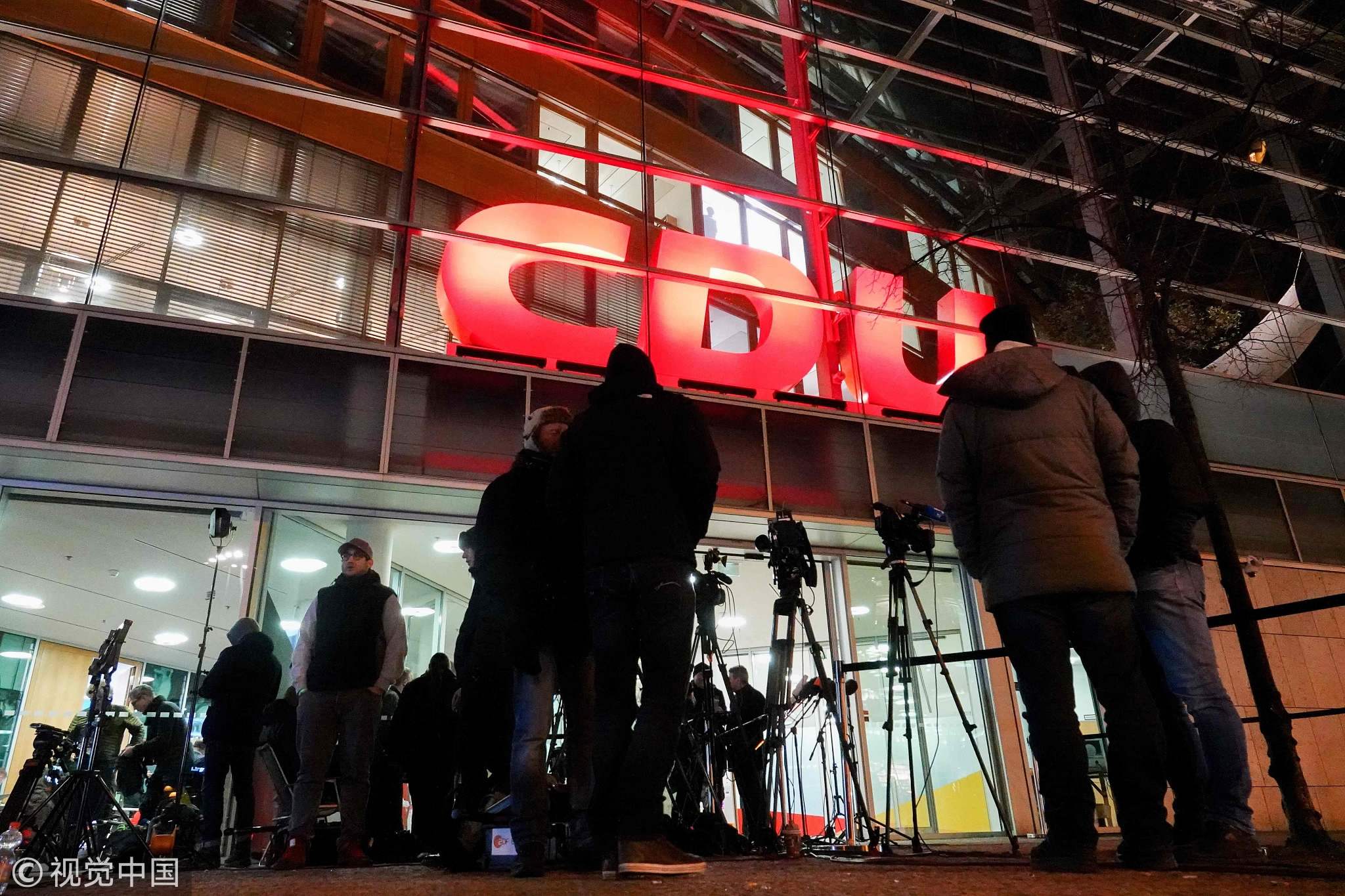
Journalists wait outside Christian Democrats (CDU) headquarters, Tuesday. /VCG Photo
Journalists wait outside Christian Democrats (CDU) headquarters, Tuesday. /VCG Photo
Germany has had a caretaker government since the Sept. 24 election returned no clear outcome.
Source(s): Reuters
,Xinhua News Agency

